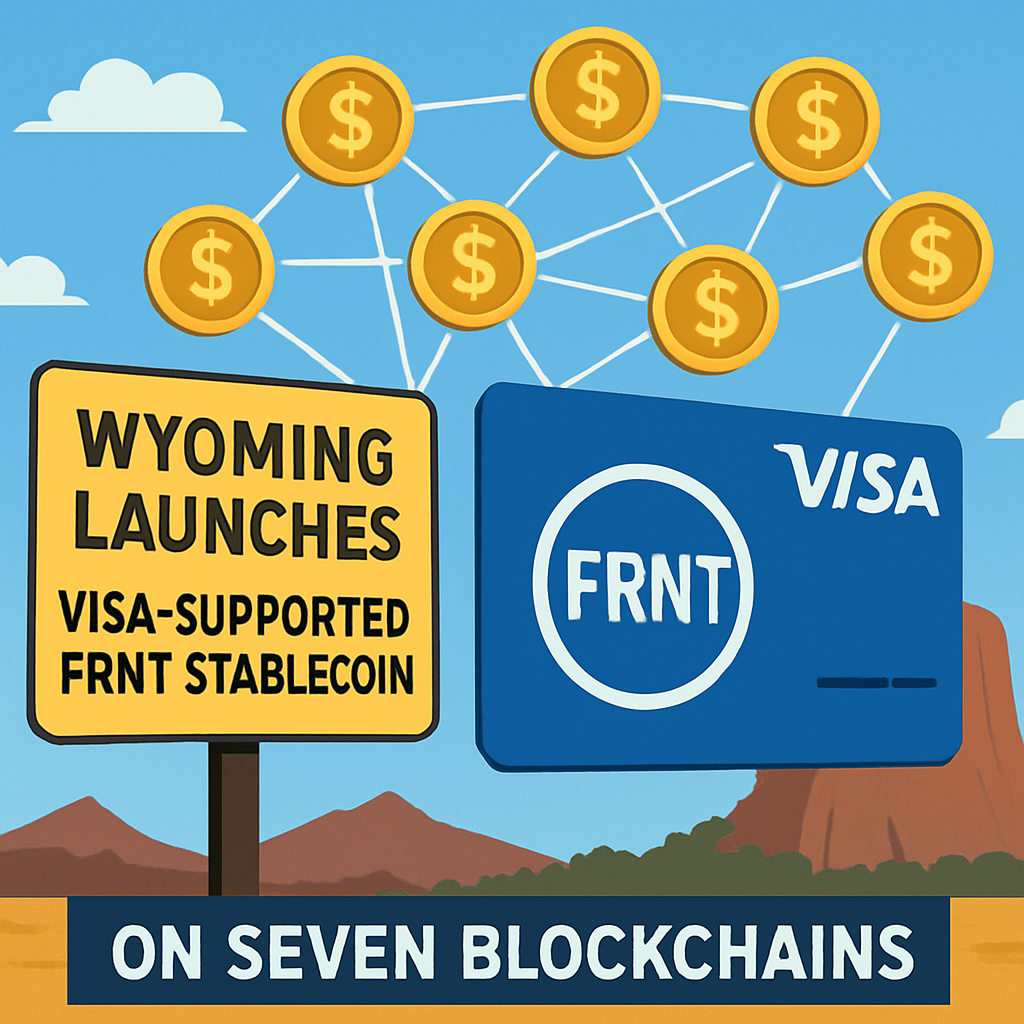Introduction
In a landmark initiative blending state governance and blockchain innovation, the Wyoming Stable Token Commission has officially launched the Frontier Stable Token (FRNT) on its mainnet. This marks one of the first instances of a U.S. state issuing its own digital currency, with backing assured by a statutorily mandated 102% reserve of short-duration U.S. Treasury bills and U.S. dollars. The launch underscores Wyoming’s ongoing commitment to regulatory frameworks that facilitate responsible digital asset adoption.
Token Architecture and Backing
FRNT is designed as a fully collateralized stablecoin. Every token in circulation is backed by high-quality, short-term Treasury instruments, held in segregated accounts under the commission’s oversight. A 102% reserve requirement exceeds typical market practice, providing an extra buffer against volatility. The collateral pool is audited regularly, ensuring real-time transparency into on-chain and off-chain holdings.
Multi-Chain Deployment
The FRNT contract suite has been deployed across seven major blockchain networks, leveraging interoperability to maximize accessibility and utility:
- Ethereum
- Solana
- Arbitrum
- Avalanche
- Polygon
- Optimism
- Base
Interoperability is facilitated by the LayerZero protocol, enabling seamless token transfers and messaging across disparate chains. This multi-chain approach ensures FRNT can integrate with DeFi protocols, payment channels, and institutional custody solutions.
Regulatory and Public Rollout
While the FRNT smart contracts are live, the commission has indicated that public purchasing windows will open following completion of required regulatory clearances. The Wyoming Blockchain Symposium served as the announcement platform, highlighting collaboration between the Stable Token Commission, SALT, and Kraken exchange. Governor Mark Gordon emphasized that public availability will be communicated directly by the commission’s office.
Visa Integration and Payment Use Cases
In partnership with Visa, FRNT will be spendable anywhere Visa is accepted, including digital wallets such as Apple Pay and Google Pay. Physical Visa-branded cards supporting FRNT are expected to follow, enabling real-world transactions from vendor payments to peer-to-peer transfers. This utility extends beyond conventional crypto use cases, paving the way for programmable social benefit disbursements, real-time tax refunds, and secure vendor settlements.
Implications and Future Directions
Wyoming’s FRNT launch represents a model for state-led digital currency programs. By embedding robust legal frameworks and transparent governance, the commission aims to demonstrate how public entities can responsibly innovate. The initiative offers a blueprint for other jurisdictions seeking to modernize payment rails and enhance financial inclusion. Long-term, the commission will explore additional on-chain applications for public sector processes, including treasury operations and identity verification.
Conclusion
The Frontier Stable Token is a milestone in public sector adoption of blockchain technology. By combining conservative collateral policies with multi-chain deployment and mainstream payment integration, Wyoming has set a high bar for state-issued digital currencies. Market participants and policymakers will closely monitor FRNT’s operational metrics, reserve audits, and user adoption to assess the viability of similar programs in other regions.
.
Comments (0)